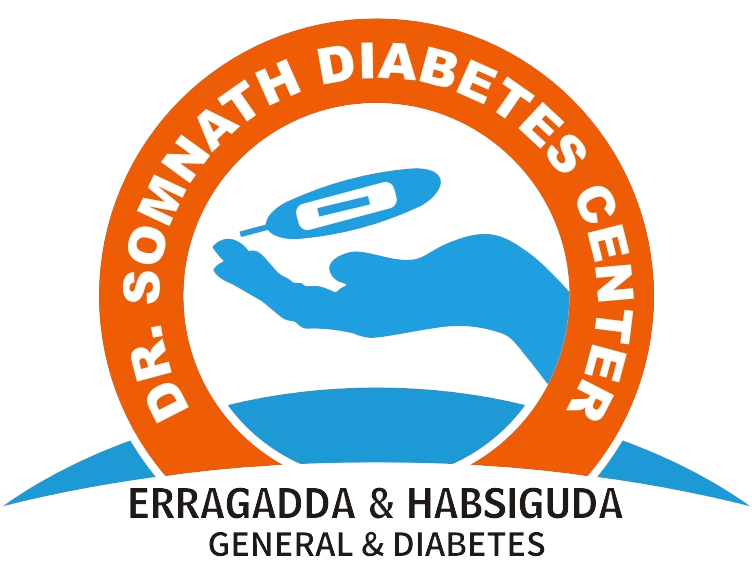Neuropathy (Nerve tingling)
Neuropathy (Nerve tingling)
Diabetic neuropathy is a type of nerve damage that can occur if you have diabetes. High blood sugar (glucose) can injure nerves throughout the body. Diabetic neuropathy most often damages nerves in the legs and feet.
Depending on the affected nerves, diabetic neuropathy symptoms include pain and numbness in the legs, feet and hands. It can also cause problems with the digestive system, urinary tract, blood vessels and heart. Some people have mild symptoms. But for others, diabetic neuropathy can be quite painful and disabling.
Diabetic neuropathy is a serious diabetes complication that may affect as many as 50% of people with diabetes. But you can often prevent diabetic neuropathy or slow its progress with consistent blood sugar management and a healthy lifestyle.
Symptoms
There are four main types of diabetic neuropathy. You can have one type or more than one type of neuropathy.
Your symptoms depend on the type you have and which nerves are affected. Usually, symptoms develop gradually. You may not notice anything is wrong until considerable nerve damage has occurred.
Peripheral neuropathy
This type of neuropathy may also be called distal symmetric peripheral neuropathy. It's the most common type of diabetic neuropathy. It affects the feet and legs first, followed by the hands and arms. Signs and symptoms of peripheral neuropathy are often worse at night, and may include:
- Numbness or reduced ability to feel pain or temperature changes
- Tingling or burning feeling
- Sharp pains or cramps
- Muscle weakness
- Extreme sensitivity to touch — for some people, even a bedsheet's weight can be painful
- Serious foot problems, such as ulcers, infections, and bone and joint damage
Autonomic neuropathy
The autonomic nervous system controls blood pressure, heart rate, sweating, eyes, bladder, digestive system and sex organs. Diabetes can affect nerves in any of these areas, possibly causing signs and symptoms including:
- A lack of awareness that blood sugar levels are low (hypoglycemia unawareness)
- Drops in blood pressure when rising from sitting or lying down that may cause dizziness or fainting (orthostatic hypotension)
- Bladder or bowel problems
- Slow stomach emptying (gastroparesis), causing nausea, vomiting, sensation of fullness and loss of appetite
- Difficulty swallowing
- Changes in the way the eyes adjust from light to dark or far to near
- Increased or decreased sweating
- Problems with sexual response, such as vaginal dryness in women and erectile dysfunction in men
Proximal neuropathy (diabetic polyradiculopathy)
This type of neuropathy often affects nerves in the thighs, hips, buttocks or legs. It can also affect the abdominal and chest area. Symptoms are usually on one side of the body, but may spread to the other side. Proximal neuropathy may include:
- Severe pain in the buttock, hip or thigh
- Weak and shrinking thigh muscles
- Difficulty rising from a sitting position
- Chest or abdominal wall pain
Mononeuropathy (focal neuropathy)
Mononeuropathy refers to damage to a single, specific nerve. The nerve may be in the face, torso, arm or leg. Mononeuropathy may lead to:
- Difficulty focusing or double vision
- Paralysis on one side of the face
- Numbness or tingling in the hand or fingers
- Weakness in the hand that may result in dropping things
- Pain in the shin or foot
- Weakness causing difficulty lifting the front part of the foot (foot drop)
- Pain in the front of the thigh
